Understanding the legal terms surrounding property transactions can be overwhelming for many real estate clients, particularly first-time buyers. One of the most critical documents in real estate is the "deed," especially when purchasing property in areas like Haliburton, Ontario. The term "deed" and phrases like "deeded access" are essential to know as they form the foundation of property ownership. This blog will clarify a deed in real estate, explain the concept of deeded access, and provide insights into how these terms apply specifically to Haliburton real estate.
What is a Deed in Real Estate?
A deed is a legal document that transfers property ownership from one party to another. When buying property, the deed proves that the seller legally transfers their interest in the property to the buyer. Deeds can be used in different transactions, including residential properties, land for sale, or commercial properties.
In Ontario, the deed typically includes critical details such as the names of the buyer and seller, a description of the property, and the seller’s signature, formally transferring ownership. Understanding deeds is crucial for those exploring land for sale in Haliburton because they determine legal ownership, boundaries, and property rights. Deeds must be registered with the Ontario Land Titles system to bind the transfer legally. This document becomes part of the public record, ensuring that anyone can verify property ownership.
Types of Real Estate Deeds You Should Know
Several deeds are used in real estate transactions, each serving a different purpose. The most common types include the general warranty deed, special warranty deed, and quitclaim deed. Each has varying levels of protection and obligations for the buyer and seller.
- General Warranty Deed: This is the most protective type of deed for buyers. It guarantees that the seller holds clear title to the property and that there are no undisclosed encumbrances, such as liens or mortgages. This type of deed is ideal when purchasing a property in a region like Haliburton, where you want to ensure that no past claims on the land can interfere with your ownership rights.
- Special Warranty Deed: A special warranty deed provides protection only during the seller's period of ownership. It guarantees that the seller has not encumbered the property during their time of ownership but makes no promises about the state of the title before they own it.
- Quitclaim Deed: A quitclaim deed offers the least protection for the buyer. The seller transfers whatever interest they have in the property without guaranteeing that they hold valid ownership or that the property is free from encumbrances. This deed is often used between family members or in non-traditional property transactions.
What is Deeded Access?
The term “deeded access” refers to a legal right granted to a property owner to access another piece of land, usually to reach a road, water source, or other amenities. Deeded access is especially relevant in areas like Haliburton, where properties are often situated near lakes or rural settings that might not have direct access to public roads or utilities.
For example, if you purchase land for sale in Haliburton with waterfront access, you might find that you have deeded access to a nearby road or trail. This ensures that you and future property owners can legally use this access point without interference from neighbouring landowners. When purchasing Haliburton real estate, it’s essential to verify deeded access as part of your due diligence to ensure that you can use the property as intended.
The Importance of Deeds in Haliburton Real Estate
Haliburton County is known for its lakes, cottages, and recreational properties, making it a prime location for real estate investments. Understanding the role of deeds in real estate is especially crucial when buying land for sale in Haliburton because deeds determine legal ownership, property boundaries, and access rights. This is particularly important if you buy land not directly adjacent to a public road or waterfront.
If your property has deeded access, it means that even if your land does not touch the road or water, you have the legal right to cross another property to access those areas. This is vital for both recreational and year-round properties in the Haliburton area. When exploring Haliburton real estate listings, inquire about any deeded access or easements that might affect your enjoyment or use of the property.
How to Review a Deed When Buying Property in Haliburton
When buying property in Haliburton, reviewing the deed carefully should be a top priority. This document outlines your legal rights and obligations as a property owner and can reveal important details about the property, such as any easements, restrictions, or covenants.
Working with a real estate lawyer who can help you interpret the deed’s language is advisable, ensuring no surprises after the transaction. For example, a deed might include restrictions on using the land, which could affect future development or improvements you want to make. If you’re buying land for sale in Haliburton, thoroughly reviewing the deed will help prevent potential legal issues and protect your ownership rights.
Understanding Easements and Encumbrances in Real Estate Deeds
A deed may also include references to easements and encumbrances, which are legal rights or claims on the property that could affect your ownership. An easement gives someone else the right to use part of your property for a specific purpose, such as a utility company running power lines or a neighbour having access to a shared driveway.
Encumbrances, however, can include liens, mortgages, or other claims that could impact your ability to sell or transfer the property. Real estate buyers in Haliburton must ensure that any easements or encumbrances are clearly identified and understood before completing the transaction. Understanding these elements will help you make an informed decision and avoid potential conflicts.
Conclusion
Understanding a deed in real estate is crucial for anyone purchasing property in Haliburton, Ontario. A deed not only transfers ownership but also outlines key rights, responsibilities, and potential restrictions on the property. Deeded access is particularly relevant in rural areas like Haliburton, where properties might not have direct road access or require legal rights to use neighbouring land.
By familiarizing yourself with the different types of deeds, reviewing them carefully, and understanding related terms like easements and encumbrances, you can ensure a smooth and legally sound real estate transaction. Whether you’re looking for land for sale in Haliburton or purchasing a cottage, clearly understanding deeds will give you confidence in your investment.
Frequently Asked Questions
What does a deed in real estate include?
A deed typically includes the names of the buyer and seller, a description of the property, and the seller’s signature to transfer ownership legally. It is also recorded through the Ontario Land Titles system.
What is the difference between deeded access and easement?
Deeded access gives a property owner legal rights to access another piece of land, typically for reaching a road or waterfront. At the same time, an easement allows someone else to use part of your property for a specific purpose.
How can I verify the deeded access of a property in Haliburton?
Before purchasing a property, reviewing the deed carefully and consulting with a real estate lawyer to verify any deeded access rights is essential.
What type of deed offers the most protection for buyers?
A general warranty deed provides the most protection, guaranteeing that the seller holds clear title to the property and that there are no undisclosed encumbrances.
Why are deeds important when buying land in Haliburton?
Deeds establish legal ownership, define property boundaries, and clarify access rights, which are crucial in Haliburton’s rural and lakefront real estate market.
Learn More














